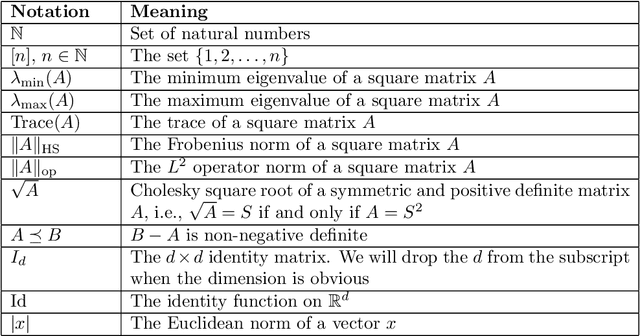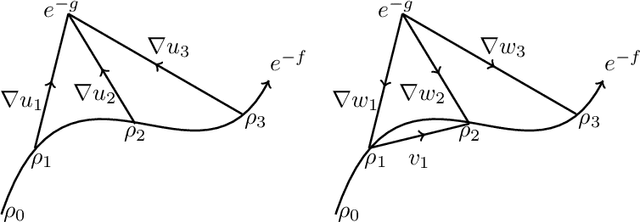Wasserstein Mirror Gradient Flow as the limit of the Sinkhorn Algorithm
Paper and Code
Jul 31, 2023


We prove that the sequence of marginals obtained from the iterations of the Sinkhorn algorithm or the iterative proportional fitting procedure (IPFP) on joint densities, converges to an absolutely continuous curve on the $2$-Wasserstein space, as the regularization parameter $\varepsilon$ goes to zero and the number of iterations is scaled as $1/\varepsilon$ (and other technical assumptions). This limit, which we call the Sinkhorn flow, is an example of a Wasserstein mirror gradient flow, a concept we introduce here inspired by the well-known Euclidean mirror gradient flows. In the case of Sinkhorn, the gradient is that of the relative entropy functional with respect to one of the marginals and the mirror is half of the squared Wasserstein distance functional from the other marginal. Interestingly, the norm of the velocity field of this flow can be interpreted as the metric derivative with respect to the linearized optimal transport (LOT) distance. An equivalent description of this flow is provided by the parabolic Monge-Amp\`{e}re PDE whose connection to the Sinkhorn algorithm was noticed by Berman (2020). We derive conditions for exponential convergence for this limiting flow. We also construct a Mckean-Vlasov diffusion whose marginal distributions follow the Sinkhorn flow.
 Add to Chrome
Add to Chrome Add to Firefox
Add to Firefox Add to Edge
Add to Edge